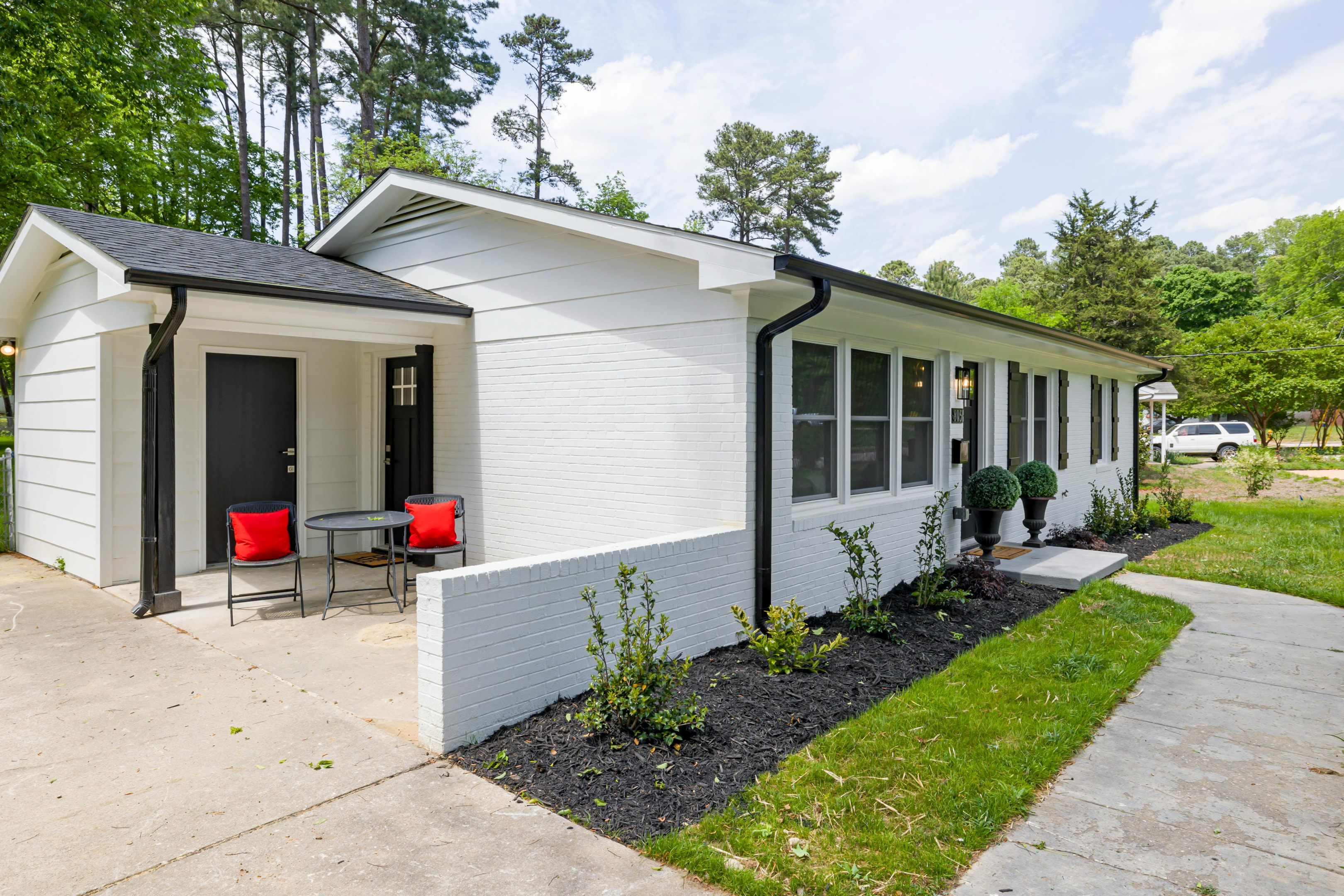Understanding Real Estate Appreciation: A Guide for Investors
Introduction
Real estate appreciation is a crucial concept for homeowners, investors, and real estate professionals, referring to the increase in a property's value over time. Understanding what drives appreciation and how to maximize it is essential for anyone involved in real estate investing. If you've ever wondered why some neighborhoods skyrocket in value while others stagnate, this guide is for you. We'll break down the factors that influence appreciation, explore strategies to boost property value, and discuss how to measure and predict real estate appreciation effectively. By examining economic indicators, interest rates, and market conditions, as well as leveraging insights from local real estate agents, investors can make informed decisions to enhance their property's market value. Whether through strategic property upgrades, understanding housing demand, or analyzing future development plans, maximizing appreciation requires a comprehensive approach to real estate investment.

What Drives Real Estate Appreciation?
Understanding the factors behind real estate appreciation, including how supply and demand significantly affects real estate appreciation, helps investors and homeowners make smarter financial decisions. Here are the key drivers:
Economic Factors
Inflation and Real Estate Prices
Inflation plays a direct role in how various economic factors impact real estate appreciation. As the cost of goods and services rises, property prices typically follow suit. This is because construction materials, labor, and land all become more expensive, pushing up property values.
Employment Growth and Housing Demand
A strong job market attracts more people to an area, increasing housing demand. Cities with high employment opportunities often see faster appreciation rates because more people want to live there, driving up property prices. To see certain cities where the housing market is on the rise, see The Best Place to Buy Investment Property: Top Cities to Consider.
Market Demand and Supply
When demand for housing outpaces supply in the housing market, property values rise. Factors like population growth, limited land availability, and slow construction rates contribute to high demand and, consequently, higher appreciation.
Interest Rates and Mortgage Availability
Lower interest rates make borrowing more affordable, increasing the number of buyers in the market. This surge in demand can lead to price appreciation, whereas rising interest rates can slow down growth.
Government Policies and Tax Incentives
Government policies, such as tax credits for homeowners or first-time buyer incentives, can stimulate demand and contribute to property appreciation. Zoning laws, property tax rates, and development regulations also play a role.
The Federal Housing Finance Agency provides crucial data and metrics related to real estate appreciation, including a four-quarter appreciation map and annual reports that quantify average appreciation rates.
Infrastructure Development and Urban Expansion
New highways, public transit systems, schools, and commercial hubs can dramatically increase property values in an area. Improved accessibility and amenities make neighborhoods more desirable, leading to faster appreciation.

Types of Real Estate Appreciation
Real estate appreciation isn't one-size-fits-all. It can occur in different ways, each influenced by various factors within the real estate market:
Natural Appreciation
This type of appreciation, also known as home appreciation, happens gradually due to a combination of economic and market factors. Key influences include inflation, which increases the cost of goods and services, thereby indirectly pushing up property values. Job growth is another significant factor, as areas with expanding employment opportunities attract more residents, driving up housing demand and, consequently, property prices. Additionally, increased housing demand in popular areas can lead to a steady rise in property values over time, making natural appreciation a reliable, albeit slow, process.
Forced Appreciation
Investors and homeowners have the ability to actively increase a property's value through strategic actions. Forced appreciation occurs when property owners make renovations, upgrades, or improvements in property management. This could involve modernizing a kitchen, installing energy-efficient appliances, or enhancing curb appeal with landscaping. These upgrades not only enhance the property's appeal to potential buyers but also allow for higher rental income if the property is leased, thus contributing to a home's appreciation. By investing in these improvements, owners can significantly boost the property's market value.
Market-Driven Appreciation
Sometimes, external factors can lead to a sudden surge in property values. Market-driven appreciation occurs when events such as a tech boom, the establishment of new business headquarters, or increased tourism transform an area into a desirable location. These changes can lead to increased demand for housing, as more people move into the area for employment opportunities or to take advantage of new amenities. This heightened demand, coupled with limited housing supply, can cause property values to rise rapidly. Market-driven appreciation highlights how external economic and social factors can significantly influence appreciation rates.

How to Predict Real Estate Appreciation
Predicting appreciation is part art, part science. Here are some key indicators to watch:
Analyzing Market Trends
Observing historical price trends and real estate market trends in a specific area can provide valuable insights into future appreciation potential. If property prices have consistently increased over the years, it's a strong indicator that appreciation is likely to continue, making it a promising area for real estate investment.
Evaluating Population Growth
Monitoring population growth is crucial, as a growing population leads to increased housing demand, which can drive up property values. Areas experiencing a population influx are often poised for appreciation, as more people moving in creates a competitive housing market.
Checking Future Infrastructure Plans
Examining city development plans, such as new transit systems, shopping centers, or schools, can highlight potential appreciation hotspots. Infrastructure improvements enhance accessibility and amenities, making neighborhoods more desirable and likely to experience increased property values.
Examining Job Market Trends
Areas with robust employment growth often see rising property values due to the influx of workers seeking housing. A strong job market attracts more residents, increasing housing demand and contributing to appreciation, making it a key factor for real estate investors to consider.
Understanding Property Cycles
The real estate market follows cyclical trends, with periods of growth and downturns. Understanding where a market stands in its cycle—whether it's in a growth phase or a downturn—can help investors make informed decisions and better anticipate potential appreciation or depreciation. To learn more about what to look out for, read Understanding Real Estate Investing: A Practical Guide for Beginners.
How to Maximize Real Estate Appreciation
Choosing the Right Location
The age-old real estate adage—"Location, location, location"—still holds true. Buying in areas with high demand, good schools, and strong economic growth increases the likelihood of appreciation. Partnering with local real estate agents can offer valuable insights into market conditions that go beyond mere data analysis.
Investing in Property Upgrades and Renovations
Simple upgrades like kitchen remodels, energy-efficient windows, and modern landscaping can significantly increase a property's value. By focusing on high-impact areas, such as bathrooms and kitchens, property owners can enhance functionality and appeal, making the home more attractive to potential buyers. Additionally, incorporating smart home technology can further boost a property's market value by appealing to tech-savvy buyers looking for convenience and efficiency.
Increasing Rental Income
If you're renting out the property, consider upgrades that allow for higher rental prices. Enhancements such as adding a home office space or updating appliances can attract higher-paying tenants. Higher rental demand can boost the property's overall value, and maintaining the property in excellent condition ensures continued interest from prospective renters, ultimately leading to steady income and increased property's value over time. For more tips on owning rental properties, read Managing Rental Properties: A Comprehensive Guide.
Adding Value Through Smart Development
For investors, rezoning an investment property for commercial use or adding additional housing units can lead to substantial appreciation. This strategy not only increases the property's utility but also its potential to generate income. By carefully assessing zoning laws and collaborating with urban planners, investors can unlock new opportunities for development that align with market demand, significantly enhancing both short-term and long-term appreciation potential.

Common Mistakes Investors Make Regarding Appreciation
Overestimating Short-Term Growth: Many investors mistakenly believe that real estate appreciation occurs rapidly. However, appreciation is typically a gradual process that unfolds over the long term, requiring patience and strategic planning to realize significant gains.
Ignoring Economic Indicators: Overlooking critical economic indicators such as job market health, interest rates, and population growth can lead to ill-informed investment decisions. These factors play a vital role in determining the potential for property values to rise, and failing to consider them can result in missed opportunities and financial setbacks.
Buying in Declining Markets: Not all real estate markets are poised for growth. Some areas may experience declining property values due to economic downturns, rising crime rates, or other negative influences. Investing in such markets can lead to disappointing returns and potential losses.
Neglecting Property Maintenance: Failing to maintain a property can significantly hinder its appreciation potential. Poor upkeep can lead to deterioration, reducing the property's appeal and market value. Consistent maintenance and timely upgrades are crucial to ensuring that a property's value continues to appreciate over time.
Measuring Real Estate Appreciation
The Appreciation Rate Formula
The appreciation rate formula is a straightforward method to calculate how much a property's value has increased over time. To determine the appreciation rate, use the following formula: (Current Value - Original Purchase Price) ÷ Original Purchase Price × 100 = Appreciation Rate. This calculation provides a percentage that represents the growth in the property's value since its purchase, offering valuable insight into the investment's performance over time. By evaluating the appreciation rate, property owners and investors can assess whether their real estate investment is meeting their financial goals and compare its performance with other investments or market benchmarks. If you need to re-evaluate the financial side of your real estate business, see Essential Strategies for Budgeting for Real Estate Investing Success.
Using Comparable Sales
Comparable sales, or "comps," are an essential tool for estimating a property's market value and potential appreciation. By examining recent sales of similar properties in the same area, investors can gain a clearer understanding of the current market conditions. Comps provide a benchmark for assessing a property's value relative to others in the neighborhood, taking into account factors such as size, location, and amenities. This method helps investors and property owners make informed pricing decisions and evaluate whether a property is likely to appreciate based on local market trends and demand.
Leveraging Real Estate Appreciation Calculators
Real estate appreciation calculators are powerful online tools that assist investors and homeowners in analyzing historical price trends and predicting future appreciation. These calculators use data from various sources, such as market reports and economic indicators, to provide a comprehensive analysis of a property's potential growth in value. By inputting specific property details and market conditions, users can receive projections that help guide investment decisions. Utilizing these calculators allows investors to make data-driven choices, ensuring they capitalize on opportunities for appreciation in the real estate market.

Conclusion
Real estate appreciation is a powerful wealth-building tool, but it's not automatic. To truly harness the potential of real estate investments, one must delve deeply into the various factors that drive appreciation. This involves a thorough understanding of economic indicators, such as inflation rates, employment growth, and interest rates, all of which play a significant role in influencing property values. Additionally, making strategic investments is crucial. This means selecting properties in high-demand areas with strong economic growth and potential for future development.
Staying informed about market trends is equally important, as it enables investors and homeowners to anticipate changes and adapt their strategies accordingly. By actively engaging in property upgrades, such as installing energy-efficient appliances or enhancing curb appeal, and leveraging insights from local real estate agents, investors can significantly maximize their property's value over time. Ultimately, real estate appreciation requires a proactive approach, combining informed decision-making with strategic actions to achieve long-term financial success. For more tips on growing your real estate business, check out Mastering the Basics of Real Estate Business: A Comprehensive Guide.